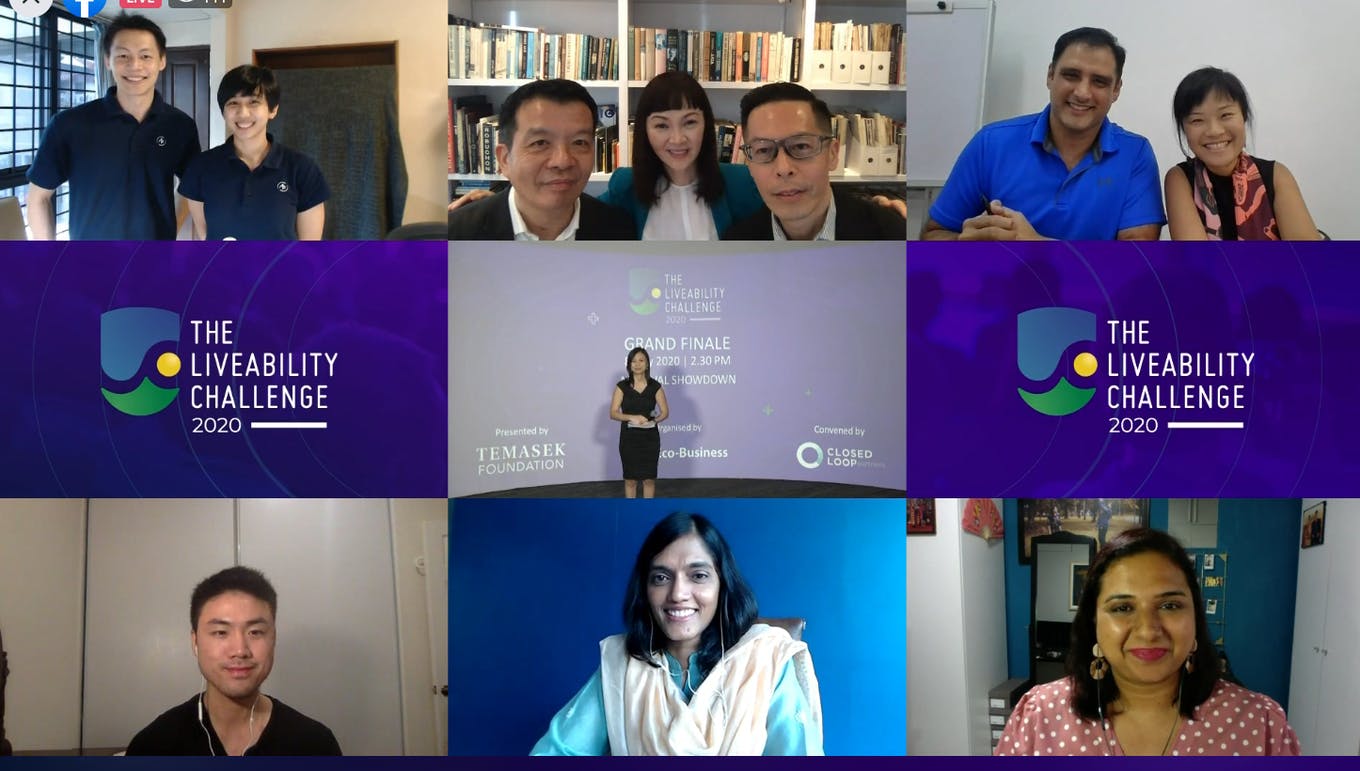The Liveability Challenge - Innovating Solutions For the 21st Century
-
Presented by Temasek Foundation, organised by Eco-Business and convened by Closed Loop Partners, The Liveability Challenge is a platform that connects investors and entrepreneurs with innovative solutions to some of the greatest problems facing cities in the tropics in the 21st century. Finalists stand the chance to secure up to S$1 million to support their game-changing work. ?
For its third edition, The Liveability Challenge 2020 was supported by 54 partners from all over the world, to focus on addressing the triple areas of need in urban food production, circular packaging and decarbonisation solutions for sustainable and future-ready cities.
Of the more than 400 applicants from over 60 countries, six of the strongest contenders were shortlisted. On 8 July 2020, the finalists took to the virtual stage at The Liveability Challenge 2020 Grand Finale and pitched their solutions to a panel of Asia’s most renowned investors in an exciting showdown to secure up to S$1 million in grant funding and other exclusive opportunities.
Some of the solutions included a plant-based milk made from Bambara groundnuts, cell- based seafood, proteins made by fermented methane, packaging film and apparel made from milk waste, and a replacement for plastic film wrap made from crustacean shells. Finalists included NamZ, Alterpacks, Shiok Meats, String Bio, TurtleTree Labs and Mi Terro.
Singapore-based biotechnology company TurtleTree Labs, represented by CEO Fengru Lin and Co-Founder, Chief Strategist Max Rye, emerged as the 2020 winner. It is the first biotech company with the ability to create milk with full functionality from all mammals. Using proprietary cell-based methods, the milk produced has a 98% reduction in carbon footprint compared to dairy milk, all without compromising on its nutritional content, taste and quality.
In 2019, Sophie's Kitchen swept the grand prize of S$1 million in funding for its vision to turn Singapore into a "protein producing powerhouse", through the compact solution to produce protein from microalgae using food manufacturing by-product.